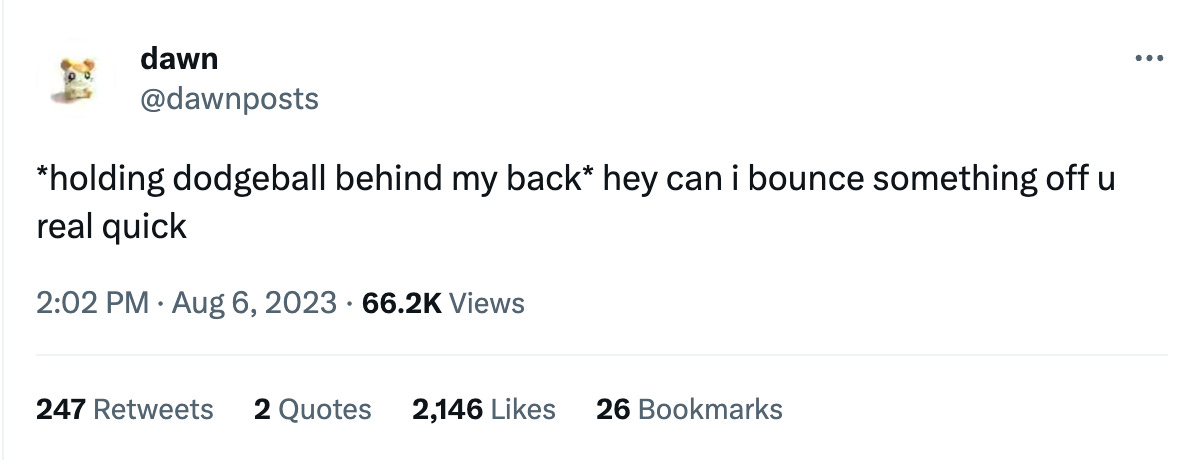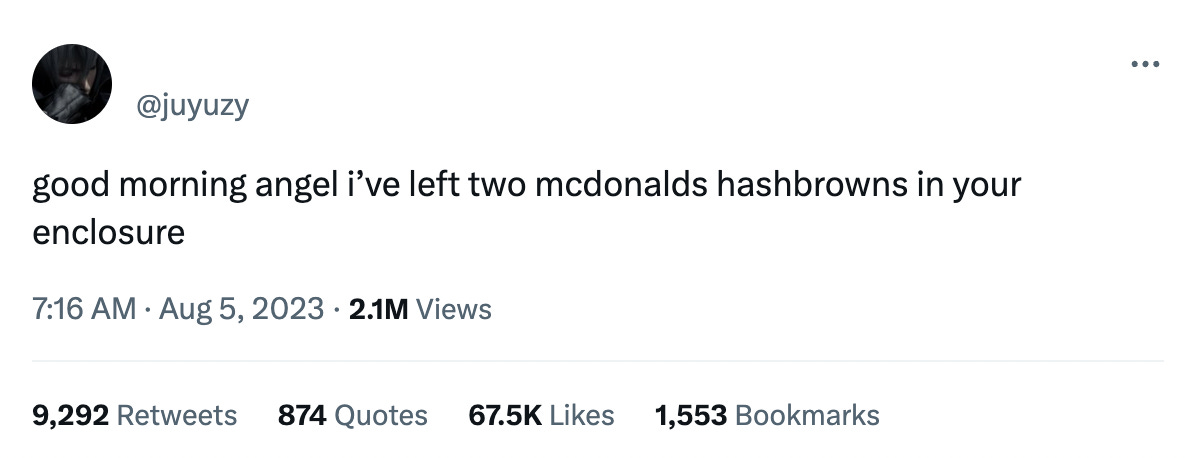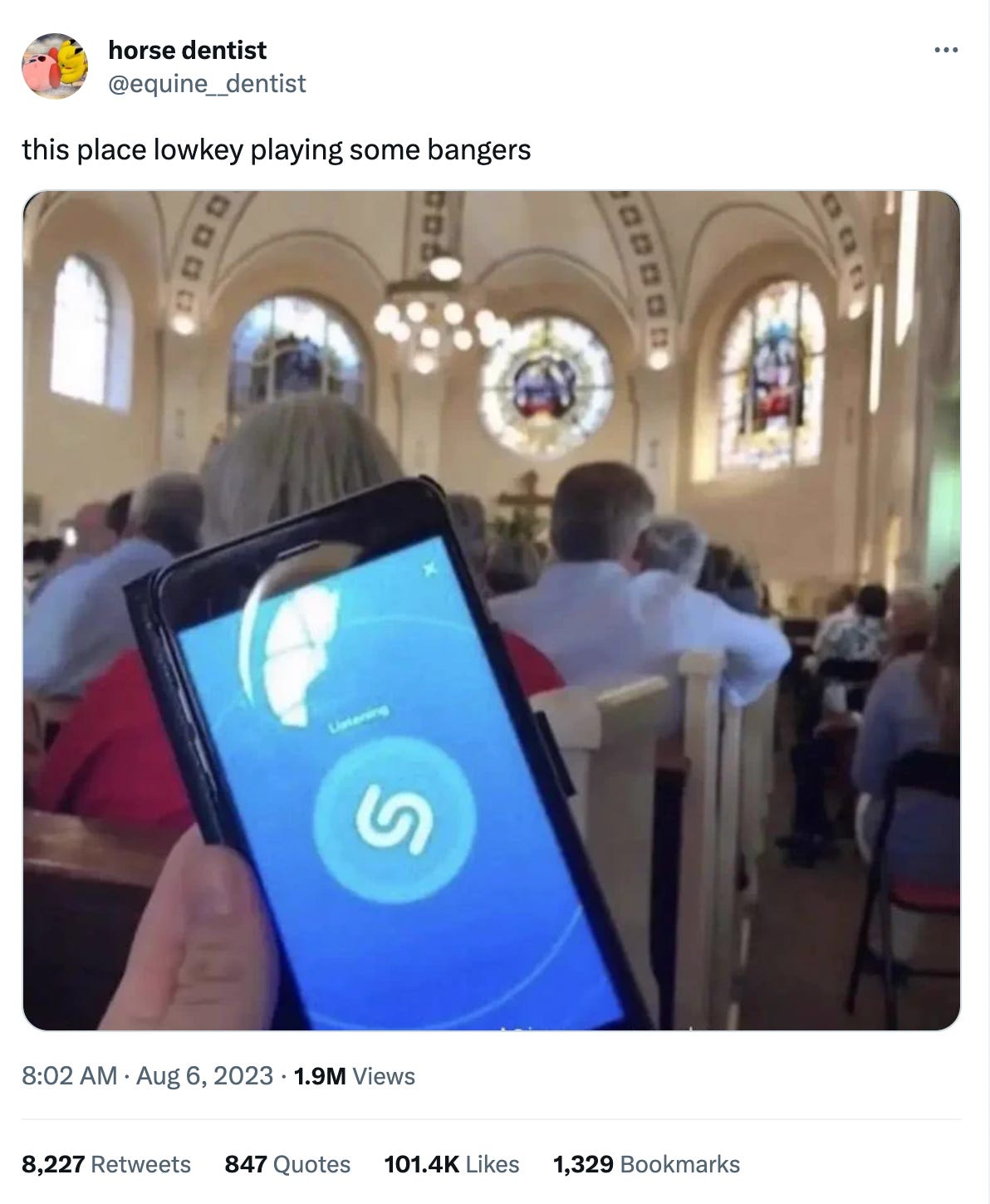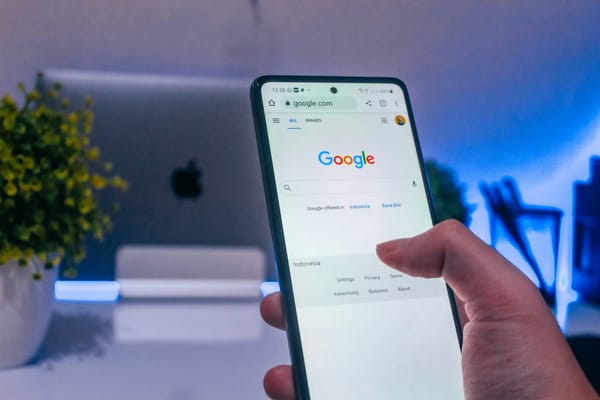It's time to change how we cover Elon Musk
After a weekend of whoppers about X and fighting Mark Zuckerberg, the press should take a more skeptical approach

Today let’s talk about a wild weekend of backtracking at the company formerly known as Twitter — and how it should inform the way we cover Elon Musk and his frequent promises in the future.
On Sunday, Musk said in a post on X that the “Zuck v Musk fight will be live-streamed on 𝕏.”
He added: “All proceeds will go to charity for veterans.”
This all came as a surprise to Mark Zuckerberg. Behind the scenes, the billionaire’s teams had been negotiating for weeks to nail down details of the fight. Zuckerberg had proposed a date: August 26, as he would later share on Threads.
But Musk begged off, saying he needed more time to train.
On Sunday Musk said that he is lifting weights around the office because he doesn’t have time for more formal training. Later in the day, he further revealed that he is getting an MRI today of his neck and upper back, and may need unspecified surgery before the fight.
As a connoisseur of pro wrestling, I’m quite familiar with the character Musk is playing here: the big talker who can’t back it up in the ring. Wrestling promoters have made a lot of money with cowardly heel champions who go to great lengths to avoid having to face their adversaries in combat. (Feigning injury is a classic of the genre.) In his feud with Zuckerberg, Musk is essentially playing Ric Flair without the charisma.
Were the Musk-Zuckerberg fight a scripted WWE spectacle, we could all sit back and enjoy the show. But these are CEOs of publicly traded companies, and they can move markets with their announcements. As such, journalists tend to take them at their word. And while Zuckerberg has lived up to his — he’s dead serious about a fight, and has been spending possibly too much time preparing for it — there are few indications that Musk is serious about stepping in the ring.
Where to begin? Aside from one training session with podcaster Lex Fridman, there’s no evidence Musk is serious about it that hasn’t come from his own social media posts. Meanwhile, he keeps introducing complications that make the event less likely to happen — suggesting it should happen in the Roman Colosseum, for example, or be streamed on a free (and unstable) platform that would mean the fight forfeits its expected bonanza of pay-per-view money for charity.
For most of you, I realize, it is no longer news that Musk stretches the truth until it disintegrates. At least since he lied about having “funding secured” to take Tesla private, it’s been clear that we should apply a healthy discount rate to everything he says.
At the same time, it is in the nature of business journalism to assume that CEOs of public companies are not lying all the time. And it’s in Musk’s nature to make frequent, bold pronouncements about his companies, politics, the nature of consciousness, and so on, all of which are irresistible to editors.
Stories about these pronouncements are dead-simple and cheap to produce — a description of an embedded tweet, followed by 300 or so words of context. And because people read these stories in huge numbers, publishers devote a lot of space to them. (If there’s an Elon Musk tweet that Insider hasn’t written a short post about this year, it’s news to me.)
The issue is that these stories are often published without the skepticism that is appropriate to someone who the Securities and Exchange Commission once forced to pay $20 million for saying something that wasn’t true.
I thought about all this over the weekend as I read about one of Musk’s other almost-certainly-not-true promises: that he will pay the legal bills of anyone who is “unfairly treated” for posting or liking a post on X. The announcement came after a NASCAR driver was suspended for liking a meme parodying the death of George Floyd.
“No limit,” Musk added, presumably about the amount he is willing to spend. “Please let us know.”
Given that Musk won’t even pay his own vendors, it strains credulity that he would file unlimited lawsuits on behalf of anyone fired over what we used to call a tweet. And it’s particularly galling, given that — as Platformer reported last November — Musk himself fired Twitter employees for lightly criticizing him in the wake of his takeover of the platform.
That context was missing from Yahoo News’ post about the subject. It was missing from Reuters’, too. Bloomberg did better, noting that Musk has often fired his critics.
By now, we have countless examples of Musk making an announcement and walking it back. In February, for example, Musk said the company would begin sharing ad revenue with creators “today” — an announcement that was widely covered. After issuing just one payment last month to a small, hand-picked group of creators last month, the company said that it had gotten too many applications and would have to delay the start of payments indefinitely.
And even when Musk does deliver, the fine print is sometimes enough to ruin the whole proposition. Last week, for example, the company said it would make good on a promise to let subscribers to X Premium — formerly Twitter Blue — hide their verified checkmarks, which have become a badge of dishonor and mockery among the wider user base.
But as Ivan Mehta noted at TechCrunch, quoting from the company’s help page, “hiding” in this case is a relative term. Emphasis mine:
“As a subscriber, you can choose to hide your checkmark on your account. The check mark will be hidden on your profile and posts. The checkmark may still appear in some places and some features could still reveal you have an active subscription. Some features may not be available while your checkmark is hidden. We will continue to evolve this feature to make it better for you,” the page reads.
Given the hold he has on the popular imagination, these “Musk says” posts aren’t likely to disappear anytime soon. (In fact, once generative AI can credibly spit out 300 words of context underneath anything he might say, I imagine we’ll see more of them.)
But if “Musk says” posts are going to exist, they ought to be much more skeptical than the ones we’ve seen lately. For starters, assume that anything he says about a prospective fight with Zuckerberg isn’t true unless Zuckerberg or Meta confirm it.
And about those lawsuits? Maybe wait until X covers a single user’s legal bills before giving it ink.
As a business, X — with its sinking ad revenues and dead-end subscription business — continues to decline in relevance. But Musk remains a singular cultural figure, actively using his power and influence to shape public debate. Most recently, X sued the nonprofit Center for Countering Digital Hate after it issued a report arguing that the company is failing to remove accounts that post hate speech.
Before Musk, the person setting the day’s news agenda on Twitter was Donald Trump. As it became clear during his first campaign that Trump mostly did not tell the truth, the press corps gradually brought more scrutiny to the candidate’s statements. In some cases, cable networks stopped carrying his public appearances live, since they could not be fact-checked effectively in real time.
Musk’s broken promises have yet to reach anything near the volume of lies that Trump told as president. But given his recent track record, it’s well past time for the press to grant him an equal measure of skepticism.
Elsewhere in X:
- Last week, I told paid subscribers that X is bracing for an exodus. A quick update: per a post on Blind, at least 26 people have quit in the wake of August’s stock grant vesting.
- Kudos to The Verge’s Sean Hollister, who accurately called BS on Musk’s legal-bills post.
- Elon Musk’s purchase of Twitter last year and the resulting surge in hate speech on the platform has pushed many prominent Black users off the site, and dealt a potentially fatal blow to Black Twitter. But Twitter alternatives are failing to protect users from racism and harassment. (Elizabeth Dwoskin / The Washington Post)
- X took the @music handle from an Ohio man who has been using it for the last 16 years without any warning or notice of compensation. (Michael Kan / PC Mag)
Governing
- TikTok users in Europe will be able to disable the personalized For You algorithm and users ages 13 to 17 won’t be targeted with personalized ads as part of the company’s compliance with the Digital Services Act. TikTok without the algorithm? To be honest, I’d love to try it. (Jess Weatherbed / The Verge)
- There is virtually no existing legal precedent governing when AI chatbots lie about and defame individuals, and until current cases make their way through the courts there is little recourse for those affected. (Tiffany Hsu / The New York Times)
- Detroit police arrested a pregnant woman and detained her for 11 hours over her connection to a crime she didn’t commit because of a false facial recognition match. All six people who say they’ve been falsely accused of a crime due to false facial recognition matches have been Black. (Kashmir Hill / The New York Times)
- The antitrust lawsuit over Google’s search business was limited to its contracts with smartphone browser makers after a federal judge threw out state attorneys general allegations over anticompetitive harm. (Leah Nylen / Bloomberg)
- The Alphabet Workers Union accused the search giant of retaliating against organizers working for its Google Help support platform by announcing in July it would lay off more than 70% of the proposed bargaining unit. The contract workers, employed by Accenture, worked on improving AI chatbot responses. (Davey Alba and Josh Eidelson / Bloomberg)
- Cambodian Prime Minister Hun Sen remains active on Facebook despite an Oversight Board recommendation he be suspended for inciting violence. Meta has until Aug. 28 to decide whether to abide by the ruling. A key test of the Oversight Board's relevance. (Danielle Keeton-Olsen and Sreynat Sarum / Rest of World)
- Media nonprofit Internews accused Meta of ignoring and understaffing its Trusted Partner program, which lets hundreds of civil and human rights groups flag dangerous Facebook and Instagram content for review. (Simon Hurtz / The Verge)
- India’s new data privacy bill, which mandates companies get consent to process user data, moved one step closer to becoming law after the lower house of parliament gave it the green light. (Jagmeet Singh / TechCrunch)
- Russian language news website Meduza said Apple removed its podcast “What Happened” from its platform without any explanation, months after state censorship authority Roskomnadzor demanded it be taken down. (Meduza)
- Reddit largely succeeded in crushing moderator dissent on the platform after the last holdouts in the protest over API pricing changes relented on the so-called “John Oliver rule.” Subreddits were requiring any and all posts be about the TV host as a last-ditch form of opposition. (Thomas Germain / Gizmodo)
- An AI model trained by British researchers was capable of logging keystrokes using audio from a microphone with 95% accuracy, and it was only slightly less accurate over Zoom. Not good!! (Bill Toulas / Bleeping Computer)
Industry
- OpenAI launched GPTBot, a new web crawler designed to improve GPT-4 and future models by analyzing web content, and provided information on how website owners can restrict access. An important move to let digital media sites opt out of AI scraping, should they choose to do so. (Should Platformer?) (Kristi Hines / Search Engine Journal)
- New research on generative AI models says they can appear to get worse at math-based tasks due to a new phenomenon known as drift, in which improving one capability of the model makes it deficient in another. (Josh Zumbrun / WSJ)
- Generative AI has given rise to online scammers that use AI-written travel guidebooks combined with fake reviews to flood Amazon’s self-publishing platform and trick consumers. Platforms have told us not to worry about generative AI spam because they have so much experience fighting it already. Oh well. (Seth Kugel and Stephen Hiltner / The New York Times)
- Meta disbanded a team dedicated to using AI to study protein structures in order to put more resources toward commercial AI product development. (Cristina Criddle and Hannah Murphy / Financial Times)
- YouTube thumbnail creators, some of whom can make thousands of dollars for a single image, are concerned generative AI will replace their work with cheaper and lower-quality designs. (It will.) (Nilesh Christopher / Rest of World)
- Microsoft is expanding its AI-powered Bing Chat to third-party web browsers on the web and mobile after testing it on Chrome and Safari last month. (Sarah Perez / TechCrunch)
- Zoom updated its terms of service to clarify that it will train its AI models using customer data without an opt-out option. Please, this meeting that I’m in right now has already taken everything I have. (Hayden Field / CNBC)
- Women’s magazines have largely been supplanted by Facebook groups, TikTok and Instagram influencers, and newsletters and podcast creators that are meeting demand for fashion and lifestyle content. (Sapna Maheshwari / The New York Times)
- NFT exchanges like Blur and OpenSea have slashed royalty rates for token sales by as much as 98%, creating tension between artists and creators and the platforms that need them to survive. Exchanges hope lower royalty rates will encourage more buying and selling. (Sidhartha Shukla / Bloomberg)
- TikTok is hosting a music competition similar to The Voice called Gimme the Mic that will be livestreamed on its platform and feature cash prizes of its in-app Diamonds currency. (Mia Sato / The Verge)
Those good tweets
For more good tweets every day, follow Casey’s Instagram stories.

(Link)

(Link)

(Link)
Talk to us
Send us tips, comments, questions, and true statements about X: casey@platformer.news and zoe@platformer.news.





